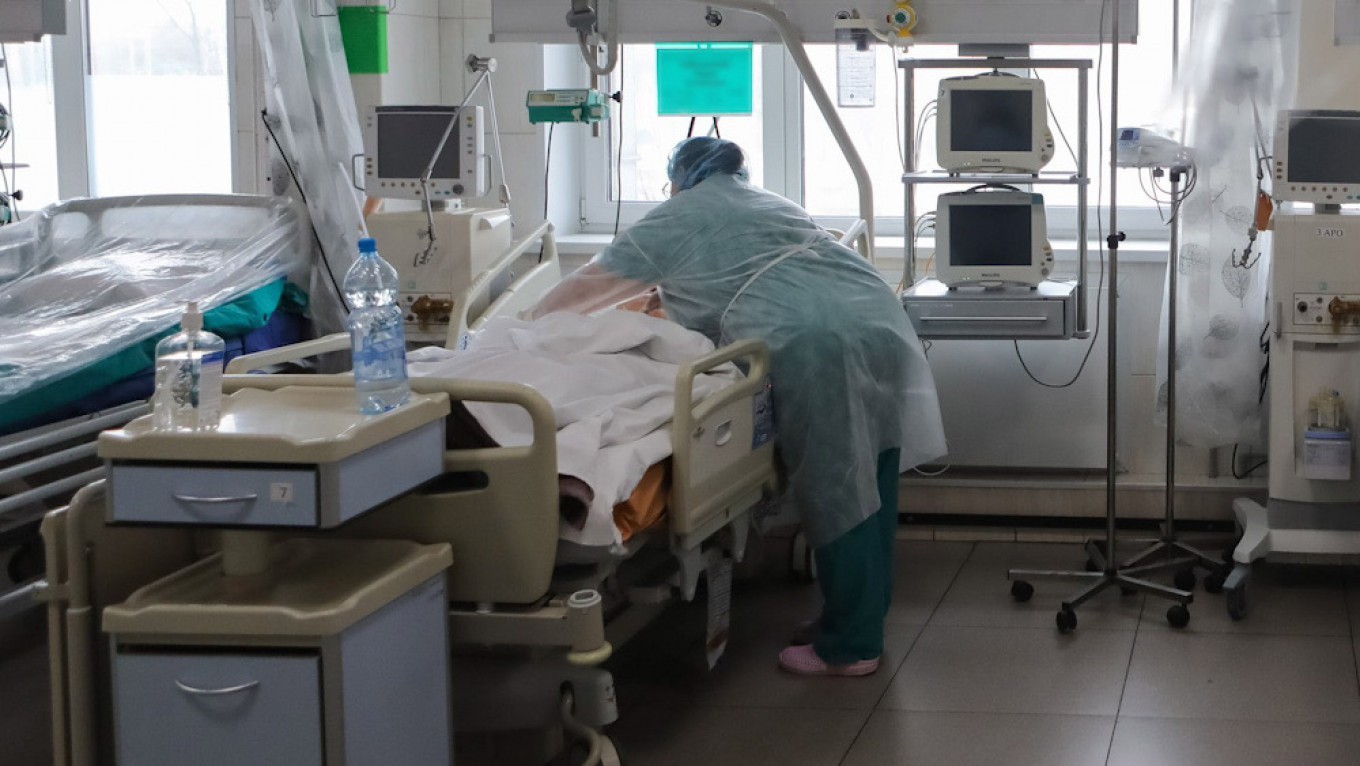
Russia recorded more than 55,000 excess deaths in January, data from the country’s official statistics agency (Rosstat) published Friday showed.
Since the start of the pandemic until the end of January — the latest such data is available — Russia has now recorded 394,000 more deaths than in the previous period. That represents a 24% increase in fatality and one of the highest excess death tolls in the world, even after adjusting for population.
Excess deaths are calculated by comparing fatalities during the pandemic with mortality rates in the same months of previous years. It is seen by demographers as the most reliable indicator of the human toll of the coronavirus.
In Russia’s case, researchers have asserted that the real excess death toll is likely higher. As mortality rates have been falling fast in recent years, the number of real excess deaths could be higher if non-coronavirus deaths have continued their decline throughout the pandemic.
Rosstat said Covid-19 was the main cause of death in 26,292 fatalities during January. In another 10,815 deaths that aren’t counted toward Russia’s official total, the virus was present, but not deemed the main cause.
That counting practice runs against World Health Organization (WHO) advice, which recommends attributing any death where Covid-19 was present or suspected to be present as a coronavirus fatality except in cases where it was obvious the virus had no impact — such as a trauma injury.
Rosstat said Russia has now recorded 131,118 coronavirus deaths since the start of the pandemic, with the virus present in another 69,314 — taking the total tally of all official coronavirus-related deaths in the country past 200,000. While in other European countries official Covid fatalities account for 90% or more of overall excess deaths, in Russia, the ratio is less than a third.
Russia rejected a second lockdown as the coronavirus swept across the country last autumn, citing a need to keep its economy open and touting its homemade Sputnik V vaccine. Numbers during the second wave surged past the peak seen last spring, when President Vladimir Putin put the country into a strict six-week lockdown.
Official case numbers have fallen since the start of the year, and Moscow Mayor Sergei Sobyanin announced the removal of some of the capital’s last remaining restrictions Friday — a stay-at-home order for vulnerable over-65s.